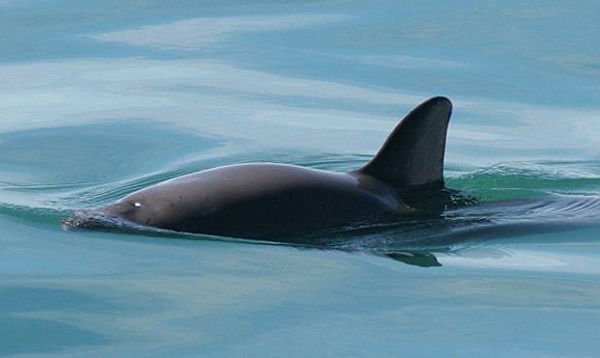Mexico City, Mexico – Mexican authorities are proposing a $37 million plan to ban gillnet fishing in most of the upper Sea of Cortez to save the critically endangered vaquita marina, the world's smallest porpoise.
The plan would compensate fishermen for stopping the use of nets that often sweep up the tiny porpoises along with their catch.
Recent reports suggest there are fewer than 100 of the shy, elusive porpoises left in the Sea of Cortez, which is also known as the Gulf of California. The gulf is the only place on Earth where the marine mammals are found.
The proposal was submitted last week for mandatory public consultation, and could be implemented within a couple of months.
The vaquita is threatened by gillnet fishing for totoaba, a huge, heavy fish whose swim bladder is prized by chefs in China.
There is already a protected reserve area around the mouth of the Colorado River delta, but the new proposal would greatly increase the no net-fishing area southward.
 |
The new area would essentially include almost all of the vaquitas' known range. The ban would initially be in place for two years.
The plan presented by the "Agriculture and Fisheries Department" would pay some of the fishermen to work patrolling the area to detect violations of the net ban. Some non-threatening net fishing techniques would be allowed for some months of the year.
Omar Vidal, of the World Wildlife Fund, praised the plan but noted that "enforcement is the main challenge," because of illegal fishing by small boats in the area.
The biggest threat is China's hunger for totoaba swim bladders; though fishing for totoaba is already illegal, the very high prices that Chinese chefs are willing to pay make it a lucrative illicit industry. According to the Smithsonian Institution's website, one totoaba bladder can attract a $5,000 payoff in the United States, and more than $10,000 in Asia.
"If this works well, then Mexico will have given the world a unique example to demonstrate that it is possible to save an endangered species and support sustainable fisheries," Omar Vidal said.
But with perhaps only a couple of dozen reproductively mature females left, Vidal noted, there isn't much time left.
Experts agree that capturing vaquitas to breed them in captivity isn't an option because it would not be feasible to capture or hold a sufficient number of them to develop a captive breeding program. Furthermore, with so few vaquitas spread over such a wide area, chasing down and catching them would risk killing off the few remaining individuals.
Original Story


